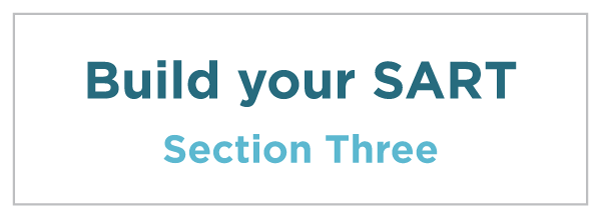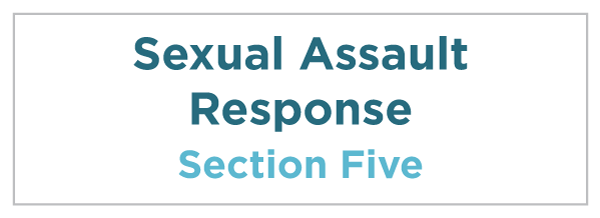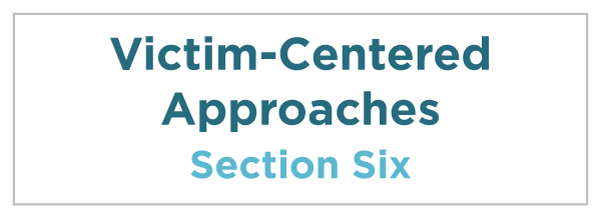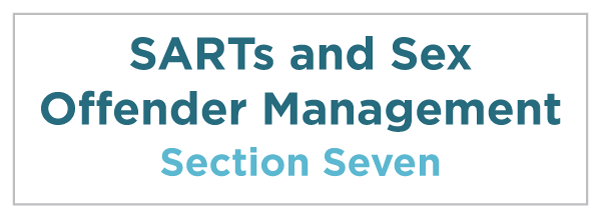Our updated Sexual Assault Response Team (SART) Toolkit is designed to support SARTs in all aspects of their work.

 |
 |
 |
 |
 |
 |
 |
 |
Linked above are the eight sections of the 2018 edition of our Sexual Assault Response Team (SART) Toolkit. You can view the 2011 edition of the SART Toolkit at the Office for Victims of Crime’s website. A list of current Protocols and Guidelines for Sexual Assault Response Teams is also available for your reference.
© 2018 National Sexual Violence Resource Center. All rights reserved.
